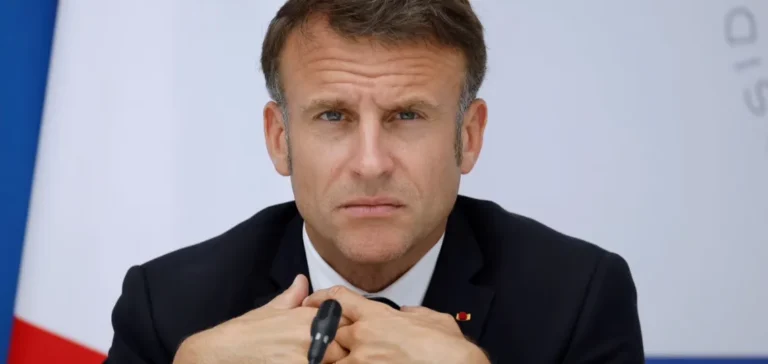An unflagged tanker carrying Russian oil bound for India was intercepted by the French Navy off the country’s western coast. The vessel, identified as the “Boracay”, is among hundreds of ships operating within the so-called shadow fleet, a maritime network designed to circumvent Western sanctions imposed on Russia. French authorities acted based on Article 110 of the United Nations Convention on the Law of the Sea, known as the Montego Bay Convention, which permits the interdiction of ships lacking a clear nationality.
President Emmanuel Macron called for taking a “step forward” in enforcing a European policy to block such vessels. He stated that oil trade facilitated by this network contributes between “30 to 40%” of Russia’s war financing in Ukraine. The French head of state announced that European chiefs of staff would convene shortly, in coordination with the North Atlantic Treaty Organization (NATO), to develop a collective response.
Military operation justified by lack of flag
The Brest public prosecutor specified that the vessel was boarded due to inconsistencies regarding its nationality and the absence of a recognised flag. French naval commandos carried out the operation on Saturday after authorities confirmed the ship failed to meet international maritime legal standards. The tanker was carrying a “significant cargo of oil” originating from Russia and destined for India.
President Macron reported “inappropriate and extremely aggressive” behaviour from the tanker towards the French frigate and helicopters deployed. The vessel’s Chinese captain is set to stand trial in February for “failing to comply”. Judicial authorities have not disclosed whether the vessel has been released or if the crew remains detained.
Opaque flows and sanctions evasion practices
The “Boracay”, 244 metres long, has been registered under seven different flags, including Liberia, Hong Kong, and the Marshall Islands, according to public records. Such vessels often operate with transponders turned off, and ownership structures based in low-transparency jurisdictions. A French military source estimated that “ten to fifteen shadow fleet ships pass daily off the coast of Brest”.
Tracking data indicates the vessel departed from Russia’s Primorsk port on 20 September with its declared destination being India’s Vadinar terminal. It was present in Danish waters between 22 and 25 September, during which multiple drone overflights disrupted air traffic in the region.
Russian reaction and unresolved questions
Russian President Vladimir Putin labelled the seizure “piracy”, claiming the tanker was in neutral waters and not directly connected to Russia. He added that the ship was operating under a third-party flag with an international crew. Emmanuel Macron noted that no evidence currently links the vessel to the aerial incidents in Denmark.
Danish authorities have suggested the drones observed in late September may have been launched from a ship. No public evidence has emerged connecting them to the “Boracay”, and the French investigation does not address this hypothesis.






















